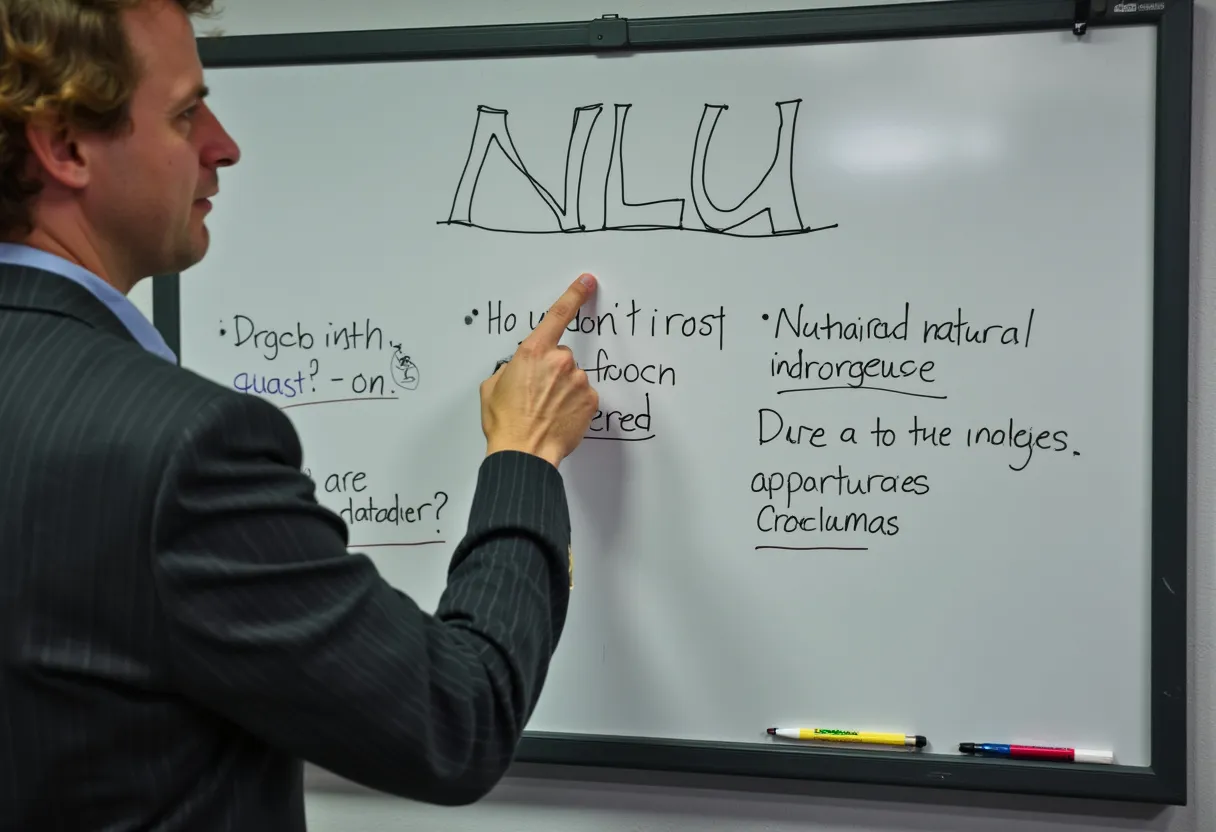Definition
What is Natural Language Understanding (NLU)?
Natural Language Understanding (NLU) is a subfield of Natural Language Processing (NLP) that focuses on enabling computers to comprehend and interpret human language in a meaningful way. NLU systems aim to extract the intended meaning, context, and sentiment from text or speech input, allowing machines to understand and respond to human language effectively.
How It Works
Function and Concept of NLU:
Understanding Human Language: NLU enables computers to interpret the nuances of human language, including context, intent, and sentiment. This is achieved through various techniques such as text classification, entity recognition, and sentiment analysis.
Relevance in SEO: In the context of SEO, NLU helps search engines like Google better understand the intent and context behind user queries. This allows search engines to deliver more relevant and accurate search results, even for complex or conversational queries. NLU is integral in semantic search, voice search optimization, and content optimization.
Practical Use Cases:
Chatbots and Virtual Assistants: NLU powers chatbots and virtual assistants to understand user queries and provide appropriate responses.
Text Classification: NLU algorithms categorize text documents into predefined categories, useful for content management and spam detection.
Machine Translation: NLU improves the accuracy and fluency of machine translation systems by considering context and nuances.
Question Answering: NLU powers question answering systems to provide precise answers by understanding the context and intent of the question.
Voice User Interfaces: NLU enables devices to understand and respond to spoken commands and queries in a natural, conversational manner.
Why It Matters
Importance of NLU in SEO:
Improved Search Results: NLU enhances the ability of search engines to understand user intent, leading to more relevant and accurate search results. This improves the overall user experience and satisfaction.
Voice Search Optimization: With the growing use of voice assistants, NLU is crucial for optimizing content to match spoken queries, which are often more conversational and context-dependent.
Content Optimization: NLU helps in analyzing and optimizing website content by identifying key entities, themes, and sentiments, ensuring that content comprehensively covers relevant topics and satisfies user intent.
Featured Snippets: NLU aids in identifying and extracting relevant information from web pages to display as featured snippets or quick answers, which can drive more traffic and visibility.
Local SEO: NLU helps search engines better understand location-based queries, providing more relevant local search results.
Best Practices
Recommended Methods and Strategies:
Focus on Search Intent:
Ensure that your content clearly addresses user intent by including structured data and relevant entities. This helps search engines understand the concepts and context of your content.
Include Related Entities:
Incorporate relevant entities in your content to help search engines categorize and understand the depth of your content. This demonstrates expertise and helps in matching content to relevant searches.
Semantic Keyword Inclusion:
Use semantic keywords to expand your organic visibility and show expertise on the subject. Avoid overusing keywords and ensure they flow naturally within the content.
Question-Answer Formats:
Use question-answer formats to educate users and ensure complete coverage of a topic. This format is beneficial for getting listed in AI summary searches and answer engine results.
Create High-Quality, Natural Content:
Develop content that is simple to understand, grammatically correct, and answers user questions comprehensively. This aligns with Google’s BERT algorithm, which emphasizes understanding natural language queries.
Optimize for Voice Search:
Incorporate conversational, long-tail keywords and create content that directly answers common voice search queries. This helps in optimizing for voice search and improving user engagement.
Use NLU Tools:
Utilize tools like Google Cloud’s Natural Language API for sentiment analysis, entity recognition, and other text annotations to enhance your content optimization efforts.
Empowering SEO with Advanced Techniques
AI-Generated Content Optimization: Adopting AI tools for content generation and optimization can streamline the process of creating relevant, high-quality content that meets user intent.
AI-Powered Content Analysis: Leveraging AI technologies for content analysis ensures that your content is aligned with SEO best practices and is structured effectively for both users and search engines.
Latent Semantic Analysis (LSA): Using LSA helps in understanding the relationship between terms and concepts in the content, leading to more focused and relevant content creation.
Latent Semantic Indexing (LSI): Implementing LSI keywords improves the search engine’s ability to identify the context and relevance of your content, thus enhancing visibility.
Latent Semantic Indexing (LSI) Keywords: Including LSI keywords helps search engines understand the semantic connection between related terms, improving your content’s comprehensiveness and relevance.
Natural Language Processing (NLP) SEO: Integrating NLP techniques in SEO strategies ensures that your content is optimized to meet the latest search engine algorithms.
Semantic Content Optimization: Enhancing your content with semantic optimization techniques improves its relevance and effectiveness in answering user queries.
Sentiment Analysis for SEO: Implementing sentiment analysis helps in understanding user sentiment, enabling the creation of content that resonates more effectively with your audience.
User Intent: Analyzing user intent is crucial in creating content that aligns with what users are looking to find, ensuring higher engagement and satisfaction.
User Intent Analysis: Conducting user intent analysis helps in identifying the specific needs and motivations behind user queries, leading to more targeted content creation.
Conclusion
Natural Language Understanding (NLU) plays a crucial role in modern SEO, enabling search engines to more accurately interpret and respond to user queries. By understanding and implementing NLU, SEO professionals can enhance search engine visibility, optimize for voice search, create high-quality content, and improve overall user satisfaction. Adopting best practices in NLU and leveraging advanced AI-powered tools and techniques will help in staying ahead in the ever-evolving digital landscape.



